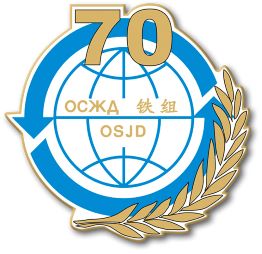JOINT STATEMENT ON GLOBAL SUPPLY CHAIN CONTINUITY DURING COVID-19 PANDEMIC 15 May 2020



International railway transport is an important backbone for the continuity of global supply chains. Now more than ever, international railway transport is playing a vital role in ensuring sustainability in the supply of goods, particularly medical and essential goods.
The World Customs Organization (WCO), the lntergovernmental Organisation for International Carriage by Rail (OTIF) and the Organisation for Co-operation between Railways (OSJD) would like to emphasize that coordination between Customs administrations, transport authorities and the railway sector, together with all the agencies involved, is critical for the continued facilitation of railway supply chains and to mitigate the overall impact of the pandemic on our societies.
As a result of COVID-19's impact on the railway industry, some railway companies are confronted with challenges in preparing and collecting paper-based documents required for Customs procedures in international railway transport.
ln this context, we would like to recall that the WCO's Revised Kyoto Convention (RKC) contains provisions enabling the application of flexible Customs procedures that allow for the acceptance of electronic documents. Noting that the RKC does not preclude Customs administrations from conducting necessary contrais, we would encourage WCO Members to facilitate railway transport by temporarily accepting electronic documents and deferring the requirement for paper-based documents until a later stage, if necessary, as stipulated in the RKC, to permit goods declarations and supporting documents to be submitted by electronic means (Transitional Standards 3.18 and 3.21, Chapter 3, General Annex).
Customs administrations are also encouraged to give due consideration to the RKC recommendation that indicates that Customs should accept as the goods transit declaration any commercial or transport document for the consignment concerned that meets all Customs requirements (Recommended Practice 7, Chapter 1, Specific Annex E).
ln addition, the WCO has launched various initiatives to ensure that the latest and most reliable information and tailored guidance reaches its Members and global supply chain stakeholders. The dedicated COVID-19 section of the WCO website compiles all relevant existing WCO instruments and tools, HS classification reference for COVID-19 medical supplies, over 100 submissions by WCO Members on the measures implemented in response to the COVID-19 pandemic, and a paper by the WCO Private Sector Consultative Group, among others.
Since the outbreak, the Convention concerning International Carriage by Rail (COTIF) has proved its relevance and reliability. Nevertheless, the Secretariat of OTIF is working closely with OTIF Member States to resolve challenges arising from the crisis, particularly in the transport of dangerous goods, such as oxygen, in order to mitigate the restrictions during the crisis.
The ongoing COVID-19 pandemic has challenged OSJD member countries to take more decisive and better coordinated actions in the new reality. ln the period since the enactment of the restrictions in most OSJD countries and across the world to counter the spread of the pandemic, the foundational documents of the OSJD governing international railway freight transport have proven to be essential and reliable.
Nevertheless, the OSJD Committee is cooperating closely with various countries, railways, and international organizations to further improve such documents and keep them up to date to meet new challenges.
The OSJD Bulletin and OSJD website are important channels and forums for sharing and exchanging information on measures implemented by railways to ensure their uninterrupted functioning during the pandemic.
The Secretary General of the WCO, the Secretary General of OTIF and the Chairman of the OSJD Committee are convinced of the importance of multilateral cooperation to address new challenges.
JOINT STATEMENT ON GLOBAL SUPPLY CHAIN CONTINUITY DURING COVID-19 PANDEMIC – download PDF
